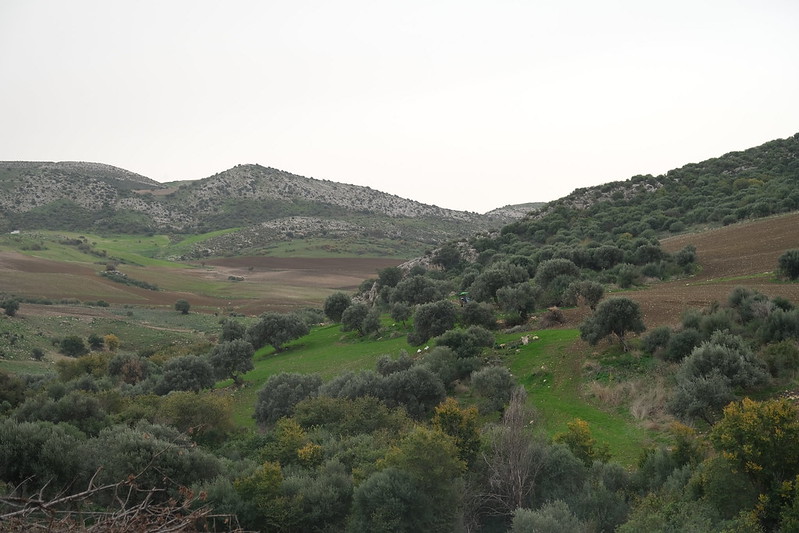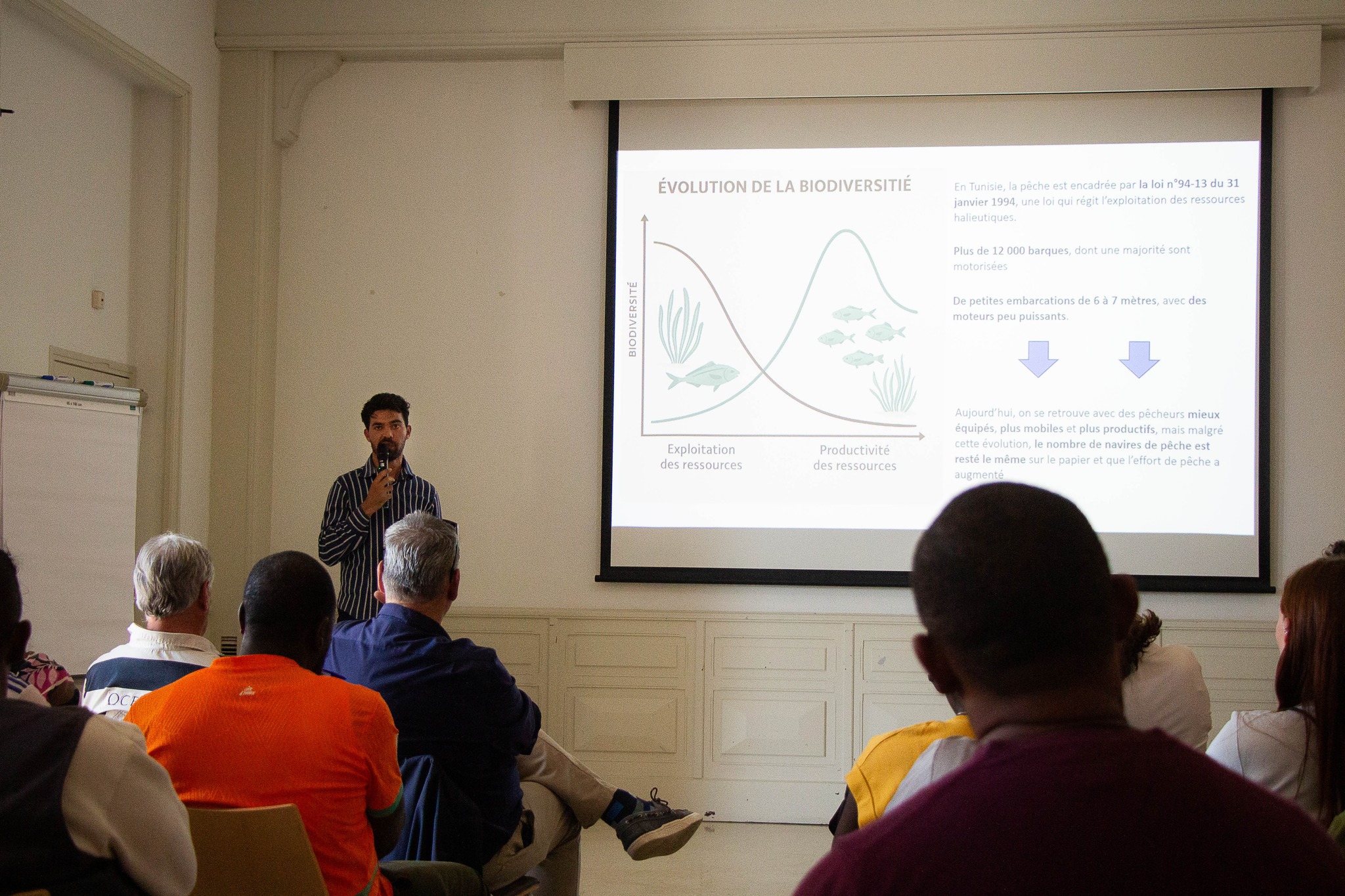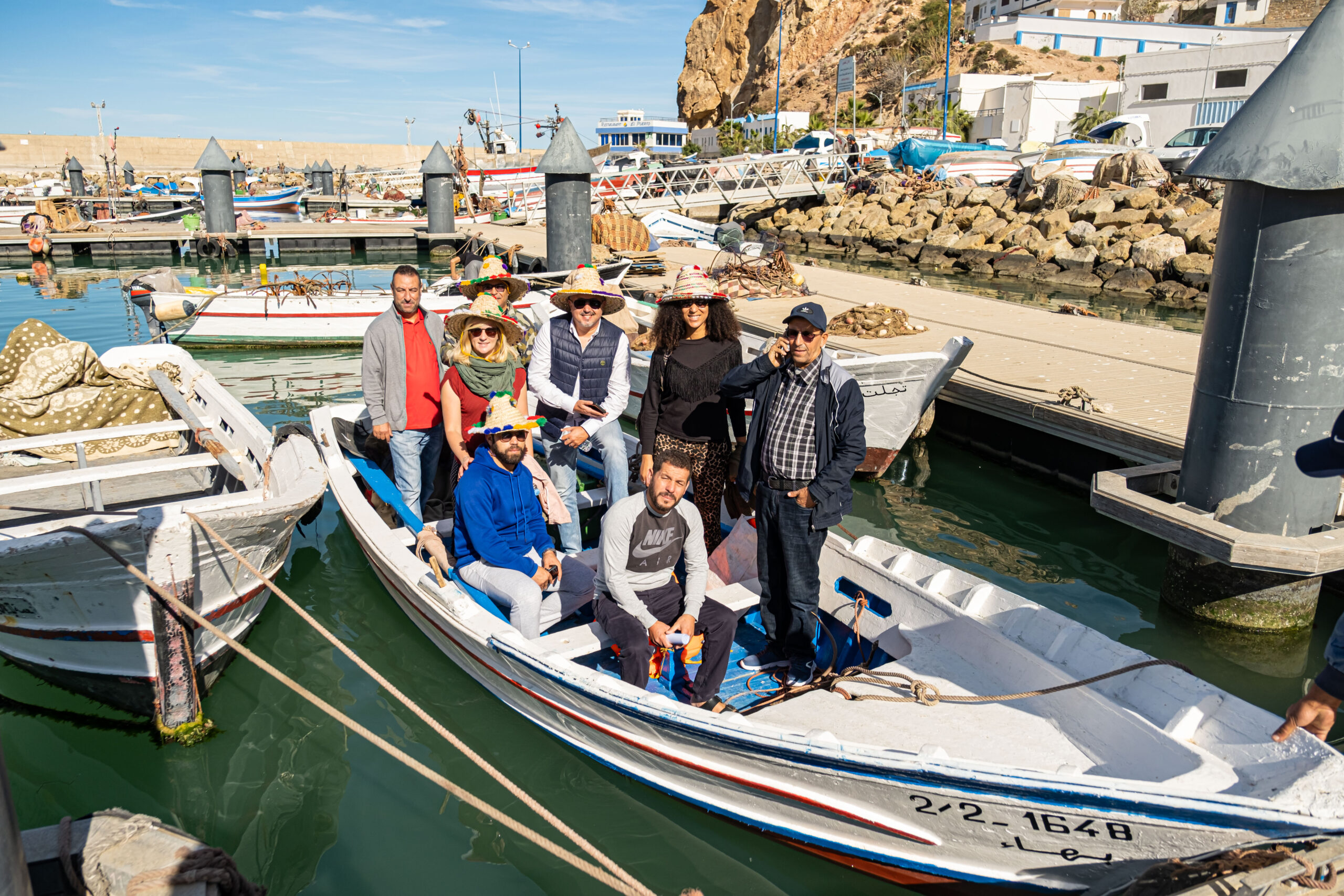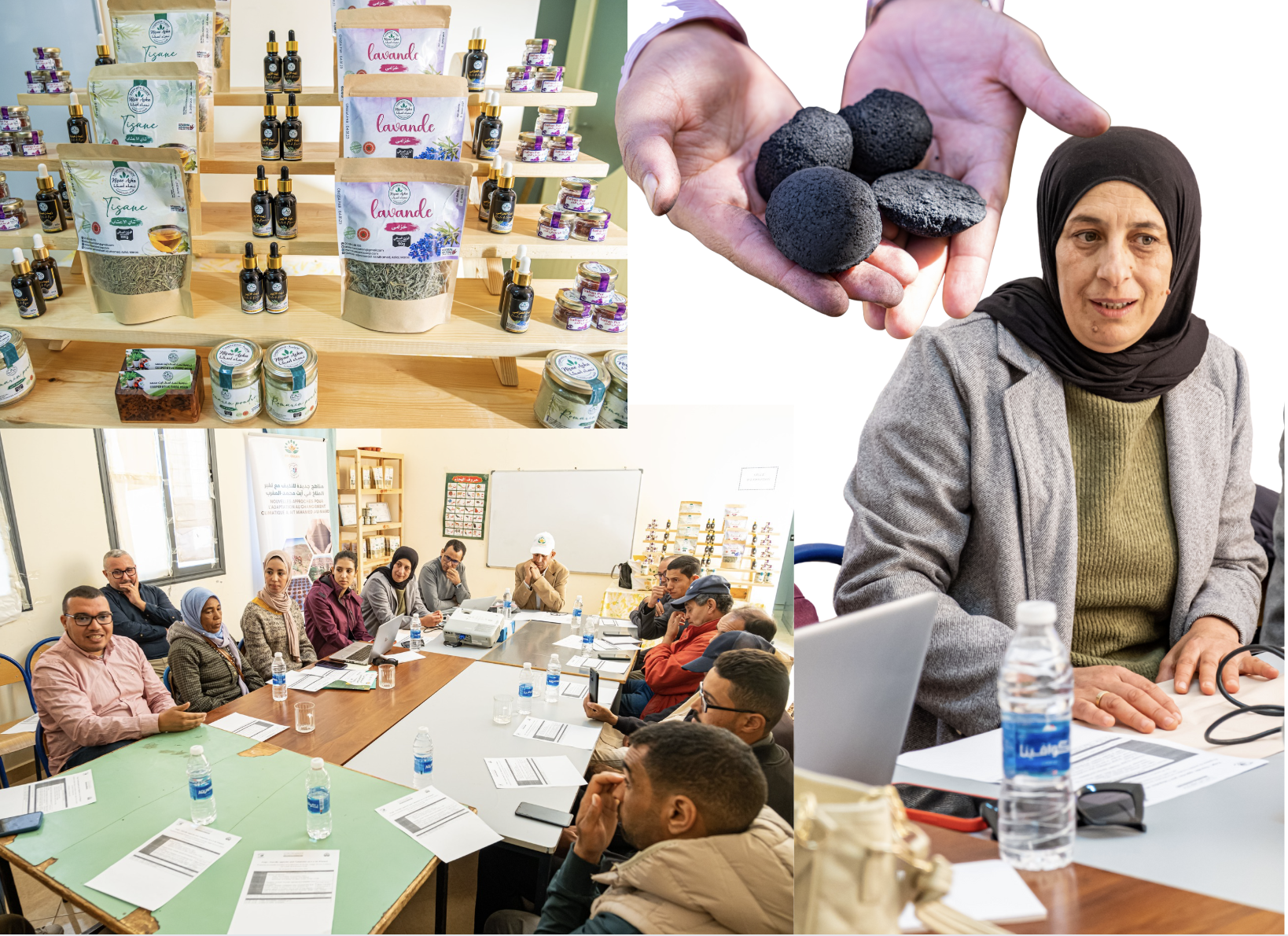Towards intelligent and sustainable agriculture
The Smart’AGRI project, implemented by the Association pour la Protection de l’Environnement et le Développement Durable de Bizerte (APEDDUB), is an exemplary initiative in intelligent, sustainable and resilient agriculture.
Environmentally-friendly agriculture
The main aim of Smart’AGRI is to promote agriculture that reduces the use of pesticides and chemical fertilizers, while making the most of local natural resources. Thanks to a participatory approach, the project has enabled local farmers to benefit from scientific advances while making the most of their own expertise. No pesticides or chemical fertilizers were used, highlighting the importance of organic farming and the organic richness of the soil left fallow for several years.
A pilot project in strategic areas
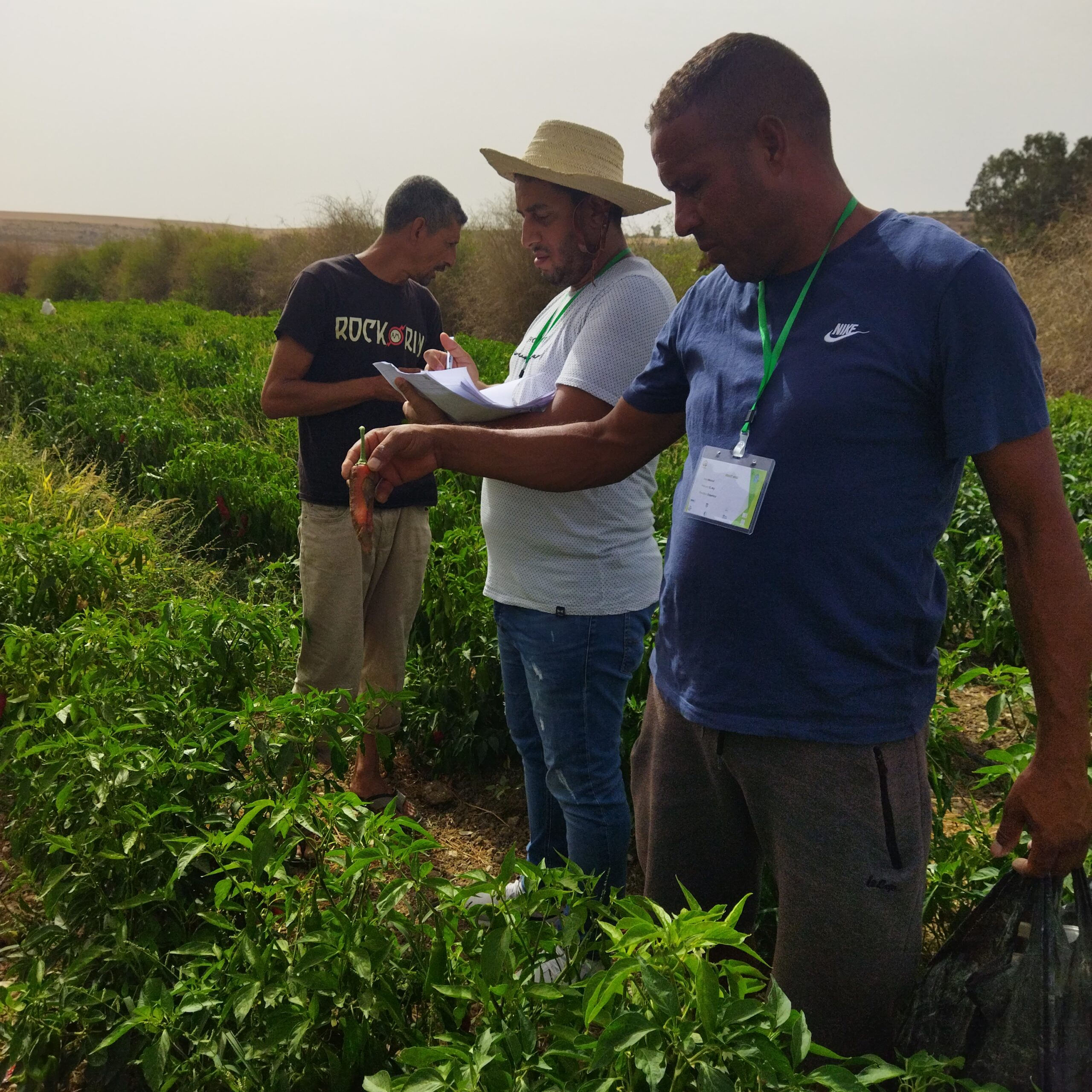
The initiative focused on the commune of Ghzela for the experimental stage and Teskraya for the field stage, in the Oued Joumine watershed, close to the Ichkeul National Park, an area of international ecological importance listed as a UNESCO World Heritage Site. The experimental area covers around 300 m², divided into two 150 m² plots each, marked out with carob seedlings planted for the occasion. The region was chosen for its rich flora, particularly in plants with bio-pesticidal potential, and for the local know-how of its farmers, essential assets for the success of the project.
The association’s team identified 15 plant species with biopesticide potential, although the list could be even longer. Each species was the subject of an information sheet detailing its properties and potential as a biopesticide. This information formed the basis of a training course for farmers in the surrounding area, during which the concept and virtues of the identified species were explained. This initiative encourages the adoption of ecological alternatives for crop protection, while valorizing local know-how and the region’s natural resources.
Women at the heart of the initiative
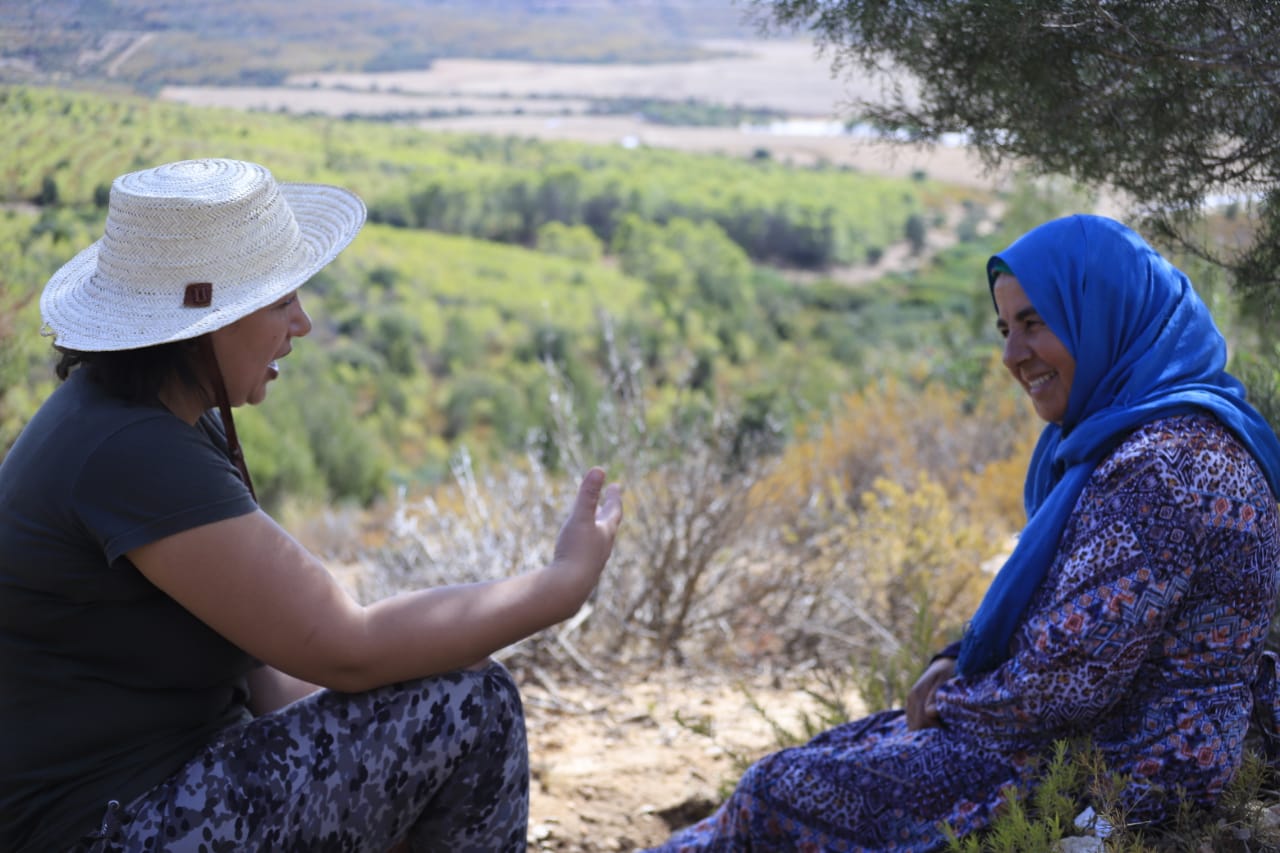
”One of the project’s great successes is the active involvement of women”– Sarra Melki -project coordinator, Smart’AGRI has enabled a group of 15 local women to become agricultural leaders, in turn training other women in their communities. This dynamic has strengthened women’s autonomy in the agricultural sector and enabled a real transmission of knowledge within rural areas.
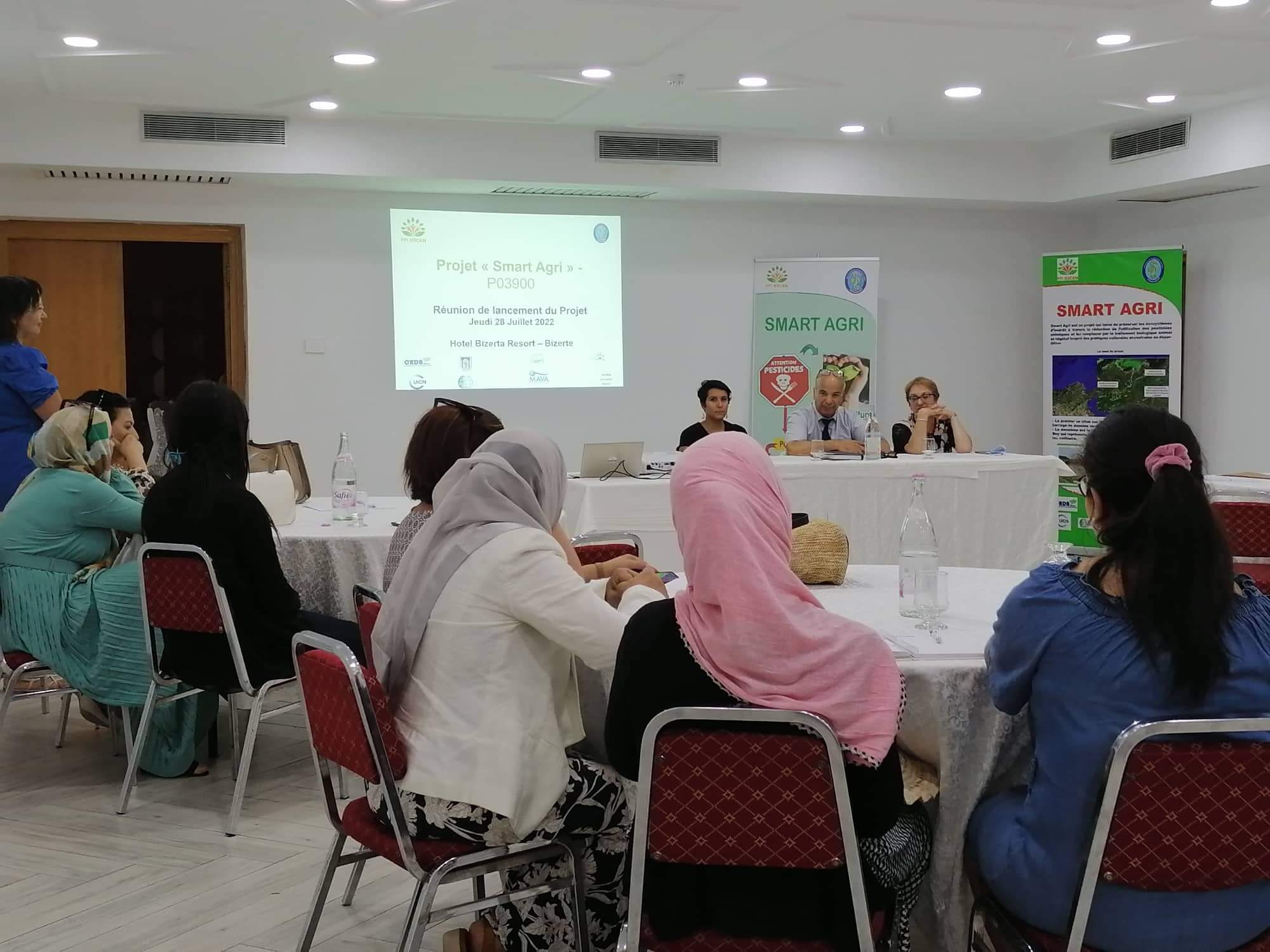
A lasting impact and a vision for the future
The results obtained have convinced the local authorities, in particular the Direction Générale de l’Agriculture Biologique (DGAB), which sees this project as a promising solution for the future of agriculture in Tunisia. An action plan and strategy for the large-scale extension of this successful experiment have already been developed, with the ambition of replicating this model in other nearby territories.
The Smart’AGRI project is a perfect illustration of how sustainable and resilient agriculture in Tunisia can be anchored in local practices, while providing concrete solutions to environmental challenges. The project shows how sustainable agricultural practices, based on community participation, can not only preserve ecosystems, but also transform production methods in the long term.
APEDDUB received its first international funding through Phase 2 of the Small Initiatives Program for CSOs in North Africa (PPI OSCAN). In 2021, after strengthening its capacities, the association was able to present its Smart Agri project during Phase 3 of PPI OSCAN, a program coordinated by IUCN-Med and funded by the French Global Environment Facility (FFEM), the MAVA Foundation, and the Sigrid Rausing Trust.
To find out more about APEDDUB ,visit their website or follow them on social media.

